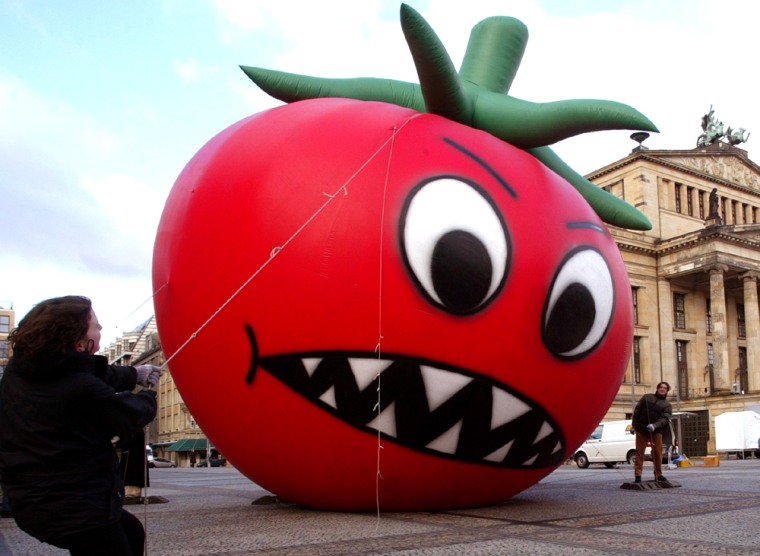The European Union lifted its 6-year-old ban on biotech products Wednesday by approving imports of an insect-resistant strain of sweet corn for human consumption.
David Byrne, the EU’s commissioner for health and consumer protection, said the Bt11 strain of corn from Swiss-based Syngenta was approved after “the most rigorous pre-marketing assessment in the world.
“It has been scientifically assessed as being as safe as any conventional maize,” he said. “Food safety is therefore not an issue, it is a question of consumer choice.”
The EU has been under pressure from the United States and other major agricultural exporters, which charge the 6-year-old ban is unscientific and thus illegal under international trade rules.
U.S. officials say they will press ahead with their complaint at the World Trade Organization despite Wednesday’s step.
Supporters of biotech technology say it will lower costs, increase yields, decrease the need for chemicals and help to feed a hungry world.
Opponents are concerned about the health risks and the threat to the environment, saying not enough studies have been done to prove it is safe and will not harm natural species. They also fear the impact on biodiversity and control of crops by large corporations.
Imports but no local crops
The genetically modified corn would only be imported and not grown in Europe, although an application for cultivation is pending. Any biotech corn sold — canned or fresh — would have to be labeled under strict new rules that took effect last month.
“Labeling provides consumers with the information they need to make up their own mind,” Byrne said. “They are therefore free to choose what they want to buy.”
Syngenta spokesman Rainer von Mielecki said it was now up to European consumers to make up their mind. “We understand and accept this,” he said.
Von Mielecki said there would be no immediate financial impact as it would take time for the market to develop in Europe. Syngenta currently generates around 3 percent of its annual sales — representing $198 million — from genetically modified organisms.
The ban was triggered when a handful of EU countries said in 1998 they would refuse new GM authorizations until there were stricter laws on testing and labeling. U.S. farmers say the EU moratorium costs them millions of dollars a year in lost sales.
But the real battle for EU biotech policy, diplomats say, is when the bloc gives a green light to plant live GM crops. That will be the acid test of whether the moratorium is really over.
Those opposed are still vocal
The commission announced its intention to lift the ban last week and followed through despite last-ditch appeals from biotech opponents, who accused the Brussels-based bureaucracy of ignoring widespread distaste across Europe for genetically modified foods.
EU governments were bitterly divided in several votes since December, which under EU rules sent the decision ultimately to the EU’s executive body.
A delegation of Green politicians warned Commission President Roman Prod on Tuesday that lifting the moratorium when several countries continue to oppose it “might be seen as an abuse of power,” according to Green party spokesman Helmut .
Friends of the Earth Europe also warned the commission that it will face “increased public hostility if they force through the approval.”
political adviser Eric Gall urged European nations that opposed the corn authorization to "stand up to the Commission’s arrogance, stay true to their position and ban the product on a national level.”
France and Italy, two of the countries that sparked the ban by refusing to authorize new biotech products in the absence of tighter food safety and environmental rules, gave different reactions.
“The labeling rules are now in force, so on a case-by-case basis, we have an authorization procedure, product-by-product,” French Farm Minister Here Gaylord said this week.
But Italian farm minister Giovanni Alumnae took a hard-line stance, saying that authorizing biotech corn imports would show “scant regard” for food quality.
Industry retrenches
Meanwhile, the biotech industry has begun to retrench, especially in Europe, where polls show wide majorities do not want to eat genetically modified foods. Supermarkets and food manufacturers have responded to this and still tend to avoid stocking genetically modified foods.
Last week U.S.-based Monsanto shelved plans to offer farmers its genetically modified spring wheat due to a lack of market demand. A month earlier, Germany’s Bayer gave up attempts to grow genetically modified corn commercially in Britain.
